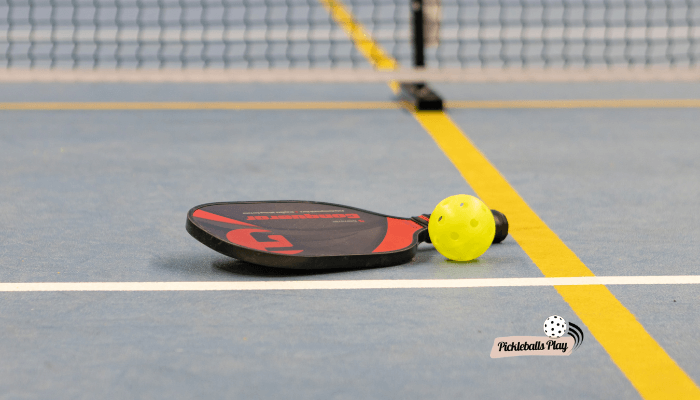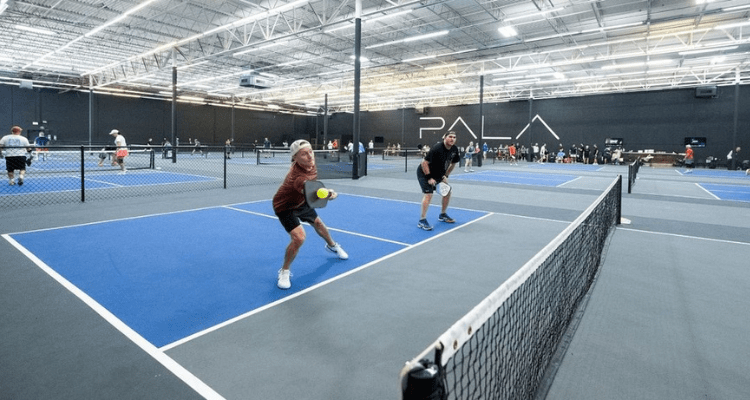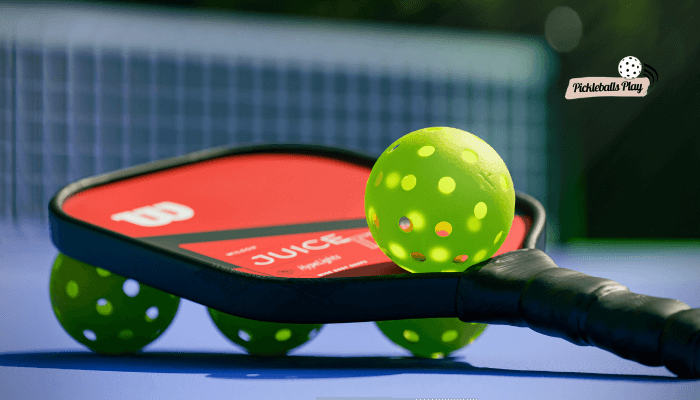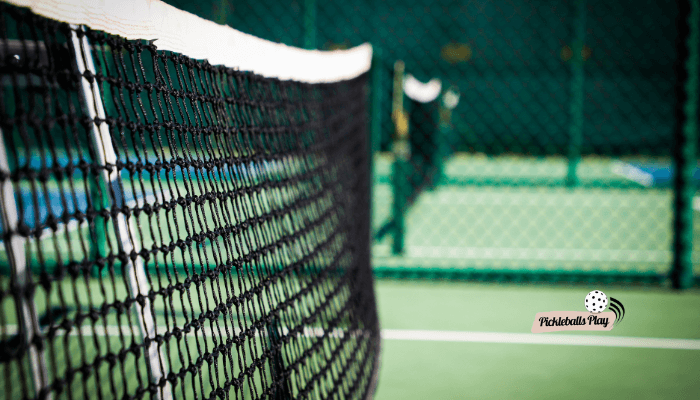Discover the truth behind the 9 most pervasive pickleball myths in this must-read exploration of the beloved sport. Uncover the misconceptions surrounding pickleball, from its origins to its gameplay nuances, as we debunk common myths that may have hindered your understanding of this rapidly growing activity.
Whether you’re a seasoned player or a curious newcomer, this insightful journey will not only dispel falsehoods but also enhance your appreciation for the dynamic and engaging world of pickleball. Prepare to challenge preconceived notions and gain a deeper understanding of the sport that has captured the hearts of enthusiasts worldwide.

Pickleball Myths Debunked!
Millions of people around the world play pickleball because it is both engaging and addictive. It originated in the United States, and now it is spreading like wildfire worldwide. There are some misconceptions about it, and it is gaining more popularity. We’ll discuss common pickleball myths in this blog to present facts and evidence to help players and coaches understand pickleball better.
Pickleball Myths & Misconceptions
Unlike most other sports, pickleball offers something unique. The trend is spreading like wildfire and exploding in popularity. Pickleball’s development was far more explosive than golf’s phase of development.
There’s only one problem pickleball was traditionally a game for older people. Almost no young people played the sport 15 years ago. As time went on, the game developed and expanded. Today, more and more young people are playing pickleball. A drastic change in demographics will change something like pickleball. Unfortunately, not in the way society perceives it.
As a result, some myths have developed. It may no longer be true what was true 15 years ago. As you read, remember that some of these myths will be relative or “somewhat true.” Ok, enough chit-chat, let’s bust into some myths!
Myth 1 – Old People Play Pickleball
Uninitiated pickleball players often think pickleball is just a way to keep seniors active in their twilight years. That’s not true.
In addition to its active yet low-impact nature, pickleball has been a favorite of retirement homes and assisted living facilities for years. However, you’ll find players of all ages on each pickleball court.
A great thing about pickleball is that almost anyone can pick it up and play. Pickleball could be a great way to get the whole family together. You should do so! In reality, pickleball is for everyone, regardless of size, age, or physical condition.

Myth 2 – Pickleball Doesn’t Require Much Movement
The majority of people who buy into this myth watch tennis, which, despite its similarities on the surface, is a completely separate sport.
Although pickleball isn’t a fast-paced sport like tennis, it is anything but stationary. In addition, to have both arms constantly moving, you must also be ready to dodge back and forth, counter volleys, or make dramatic saves at any time.
Pickleball not only keeps your body moving but also keeps your senses and mind sharp. Eyes are following the ball while ears are listening for the whack. Your subconscious is calculating where your opponent will most likely land next, and your reflexes are poised to fire when the time is right.
Myth 3 – Pickleball Isn’t a Competitive Sport
This is one of the funniest myths for players. I have never played a sport as competitive as this. On the pickleball court, there are several close competitions since it is a fast sport. Each player utilizes their unique skills and tries to beat the other. People enjoy fierce competition because they don’t make silly mistakes.
When one player makes a mistake, another wins. The game can be played in doubles, with two players competing against each other. Pickleball rallies can go over 100 shots, and if people still think it’s less competitive, then they’re kicking somewhere.
You should discuss its most experienced player and those ranking at the top of the list if you still don’t understand this myth. That will shock them!
Myth 4 – Pickleball Doesn’t Require Special Equipment
Pickleball, like any other racket sport, requires specially designed gear. Firstly, you have the paddle, which is similar to a ping pong paddle but is bigger and lighter to facilitate quick movements. Next, the ball itself is made of strong polymer and has 26-40 round holes to increase air resistance. It resembles an oversized Wiffle ball.
Pickleball even has its court type. It’s the same size as a doubles badminton court – 20 feet by 44 feet – with tennis court markings like those on a pickleball court. A regulation tennis or badminton net is 36 inches high on the sidelines and 34 inches high in the center, so this court net is shorter.
In other words, pickleball isn’t the same thing as tennis or badminton. There are rules, equipment, and a playing area specific to this sport.
Myth 5 – Athletic Player Always Wins
As with tennis, pickleball would always be won by the player with a stronger serve, faster feet, and more endurance. Pickleball, however, encourages many different strategies and allows players of all different types to excel because of how the game is played.
A great example is ball speed. In the play, tennis balls can reach speeds up to 163 miles per hour, but pickle balls move much slower, with the hardest shots traveling only 30-40 miles per hour.

Even though slowing things down might seem like child’s play at first glance, the reality is that it forces you to hit with precision, nail your timing, and establish a rhythm. In the absence of those things, you’re as good as pickled.
Pickleball players who have been playing for years take younger, fitter, and less experienced players apart with relative ease.
Myth 6 – Pickleball Isn’t for Me
One of the most unfortunate pickleball myths is this one. We can almost assure you that you’re flat-out wrong if you think you wouldn’t enjoy pickleball.
Pickleball suits everyone, as we have said before. All ages are welcome, including preteens, retirees, athletes, and people who have never played a sport before. Pickleball is a fun game you’ll enjoy.
That’s it.
Myth 7 – Young People Have Advantage Over the Old one
Pickleball players have a variety of experiences. Therefore, it does not matter if you are a beginner or an expert; beginners do not have an advantage over experienced people.
An expert pickleball player with expertise, however, can destroy a young, healthy player. Fortunately, pickleball isn’t always a game of strength and force.
Skills and strategy are key to this sport. The game depends on your ability to make an excellent strategy and win. Seniors who fear they will lose to young people need not worry. Take your pickleball system to the court and beat your opponents.
Myth 8 – Be Quick to Reach the Kitchen Line
Pickleball’s kitchen line is the most advanced rule. Strike the ball alone and do not allow it to fall there. Nevertheless, most people want to see their opponent’s shot as quickly as possible, so they run toward the kitchen line. You will lose the game if you do this because if one of your opponents falls behind, you are not at that spot.
Watch the opponent’s shot, learn its strategy, and take the position where the pickleball shot will land instead of moving toward the kitchen. Getting to the kitchen would help, but if you move too quickly, you will find it hard to return.
Myth 9 – Beginners Should Use Light Paddles
Pickleball has the reputation of being a terrible sport. Newbies spend most of their time down at the baseline, while skilled players spend most of their time at the net. Beginners will hit long shots, while experts will hit short shots. Therefore, beginners should use paddles that are weighted so that the ball travels far.

Using light paddles will lead to newbies swinging more and hitting harder, which can lead to severe injury and difficulty. As a result, people need to understand that and let go of this misconception.
FAQs: Pickleball Myths
Why do old people play pickleball?
Pickleball players are significantly less likely to suffer from depression in older adults who play pickleball in tournaments, according to a 2018 study of 153 players. According to Jonathan Casper, an associate professor at North Carolina State University, pickleball can restore a sense of purpose after retirement.
Is pickleball hard on your body?
It is common for Pickleball players to suffer chronic injuries due to overuse or repetitive pounding on the hard surface. These include heel contusions and plantar fasciitis in the feet.
What is the average age of people who play pickleball?
Older adults are becoming increasingly interested in pickleball which is a relatively new sport. A pickleball player, on average, is 55 years old, but people of all ages and abilities enjoy the game. 2.8 million players are estimated to be playing the game in the United States as of 2018.
What are the benefits of playing pickleball?
The terminology for pickleball is easy to learn and fun, whether you play indoors or outdoors. Set up a pickleball court using the dimensions of a tennis court. Materials for it are readily available. You can build the court in your backyard if you play with your family and friends.
Pickleball Myths: Wrapping Up
This results in some myths being untrue. People mistrack you for the sport based on misconceptions and thinking. Otherwise, it provides a fantastic experience that is convenient. To win the game, you would need special equipment and complete concentration.
People of all ages can play pickleball. Whether you are a beginner, intermediate, or expert, you follow the guidelines and understand all the rules that will help you. Keep these pickleball myths at bay and enjoy this beautiful game instead.




